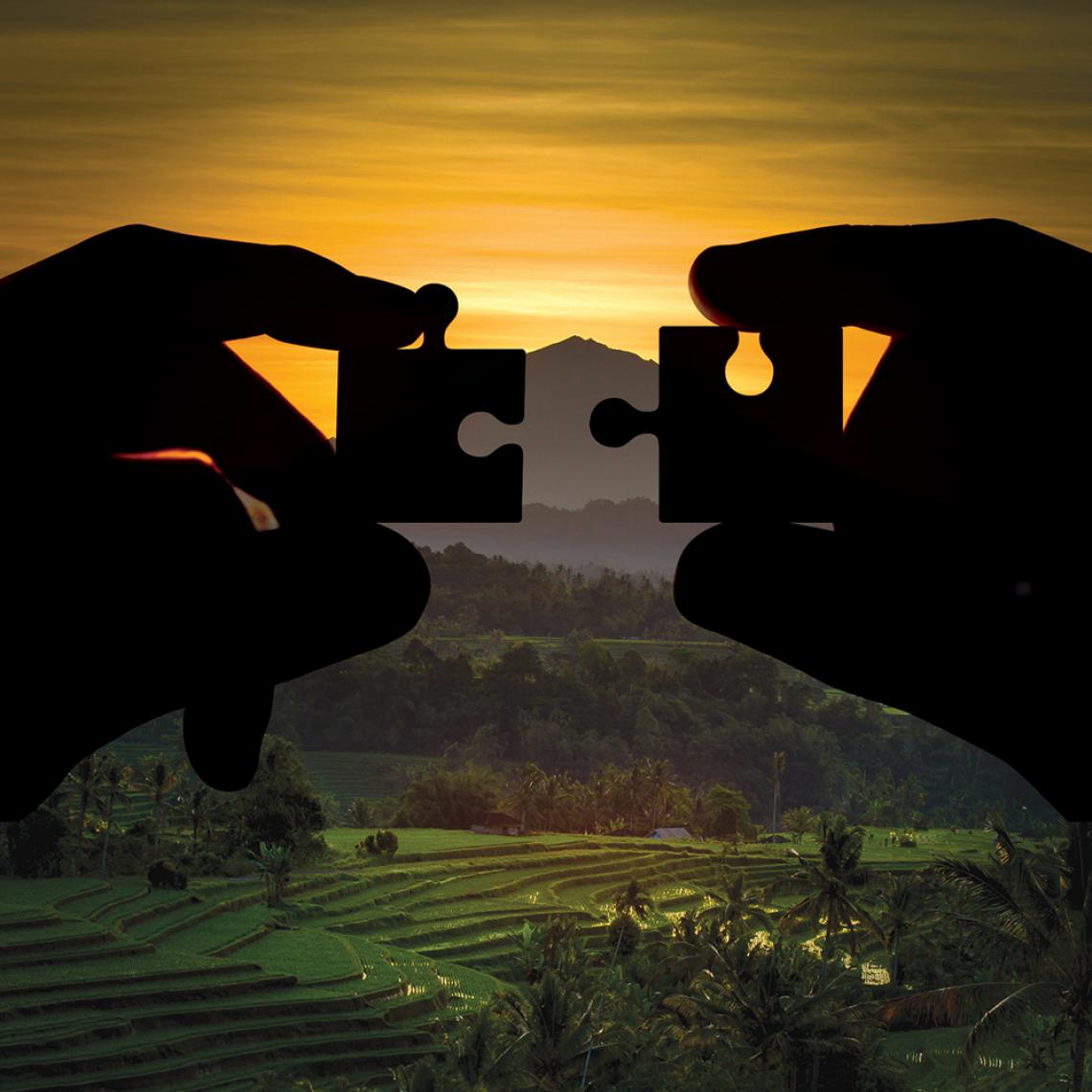Researchers who conducted the Doing Research assessments in Indonesia, Bolivia, Myanmar and Nigeria discussed their findings at the 2019 Global Development Network conference.
Featured in Asia Research News 2020 Magazine
Unlike many other developing countries, almost no social science research is done in Myanmar’s higher education institutions, according to an analysis by the Centre for Economic and Social Development (CESD). The bulk of social science research currently produced in the country is done by private research groups or non-profit organisations, primarily funded by international donors.
“It is not that there is nothing there, but the absence of anything to measure was alarming,” says Nyein Chan Aung, the technology and communications officer for CESD.
The finding comes as part of the Doing Research initiative launched by the Global Development Network (GDN) to systematically assess how features of a nation’s research system affect production, dissemination and uptake of quality social science research.
Social science can provide evidenced-based insight into everyday lives, informing policies that advance social and economic development. However, very little is known about how social science research happens in developing countries, and how much policymakers use data to design laws and programs.
To address this information gap, GDN developed a comprehensive framework to map a nation’s social science research landscape. The methodology, which is carried out by local teams, identifies who is producing, communicating and using social science research, and to what extent, based on a set of common criteria. “Only by looking at the whole system can we identify the actual levers of change,” says Francesco Obino, head of programs at GDN.
The Doing Research program began in 2014 and included 13 countries in the first pilot phase. A standardised methodology for national assessments was expanded in 2018 and 2019 to Bolivia, Indonesia, Nigeria and Myanmar.
Funding for social science research often comes from international donor organisations, but there is widespread concern that donors heavily focus on hot topics, rather than allowing locals to determine research priorities.
COMMON CHALLENGES
While Myanmar’s results were unique, preliminary findings reported by the four latest countries revealed some common challenges. Unsurprisingly, lack of funding for social science research was an issue across the board. All teams reported that government funding for research is limited, and social sciences are an after-thought to science, technology and engineering.
Did you know?
Less than 10% of academics in Myanmar actively engage in social science research.
Funding for social science research often comes from international donor organisations, but there is widespread concern that donors heavily focus on hot topics, rather than allowing locals to determine research priorities. This leads to some areas becoming overly researched, and forces some researchers to follow the whims of donor organisations, rather than developing their own areas of expertise.
One organisation, Canada’s International Development Research Centre (IDRC), is partnering with GDN to help break that cycle. IDRC funded Myanmar’s Doing Research assessment, planning to use the results to help strategically identify what support is needed and where resources can be most useful. While not many international donors focus on strengthening social science research systems, it was a natural fit for IDRC.
“IDRC’s mandate is to fund research that will promote growth, reduce poverty, and drive large-scale positive change,” says Anindya Chatterjee, regional director for IDRC’s Asia office. “Building knowledge ecosystems in different places is one of our organisational priorities.”
NO DEMAND
All four teams also reported a lack of demand for high quality social science research by policymakers. This was especially true in Bolivia where there is little interaction between policymakers and researchers, as well as scarce professional opportunities.
“Social science research is not considered an attractive career,” explains Sharim Ribera Camacho, research associate with the Center for the Studies of Social and Economic Realities. “The task of conducting research and pursuing a career as a researcher is very difficult, particularly due to lack of local sources of financing.”
Developing a coordinated, national research agenda could help make better use of funds, and raise the profile and demand for social science evidence to inform public policy, she says.
Did you know?
Nigeria is the second largest producer of social science research papers in Africa, following South Africa.
In contrast, Nigeria has government-funded research agencies to respond to requests by the legislature. Yet there is still very little uptake, or use, of social science evidence in policymaking. Academics need to focus on producing quality data that addresses societal issues and be trained to clearly communicate with policymakers, says Abiodun Egbetokun, assistant director of research at the National Centre for Technology Management.
LACK OF TRUST
In Myanmar, lack of trust is the largest barrier to policymakers using social science research.
“Policymakers don’t trust researchers,” says Jana-Chin Rue Glutting, a visiting researcher with CESD. “They don’t know the outcome of what they are going to publish, or what it is for.”
Some local communities in Myanmar do use local research, which could help build positive momentum engendering trust of social science research at the national level, Glutting says. A coordinated agenda could also help, but only around topics the government will be likely to embrace, not politically sensitive issues. Academics at universities also need to be brought out of isolation and join the national conversation, which could help re-establish Myanmar’s historically robust research culture.
The Doing Research assessments aim to systematically map the social science research landscape of developing countries, and identify how to better connect social science with policymaking.
REBUILDING TRUST
Indonesia has different challenges regarding trust. There, social science research has been politicized to support different candidates, spawning distrust of data and facts, says Inaya Rakhmani, an associate professor at the Universitas Indonesia and researcher at the Centre for Innovation Policy and Governance.
And while Indonesia’s national budget for science and innovation has doubled in recent years, there are concerns that the government retains too tight control of the research agenda, limiting academic freedom. For example, they are concerned that international collaboration could be inhibited by requiring foreign academics to obtain government permits to collect data in Indonesia.
Rakhmani and her colleagues recommend that funding and training be spread throughout the Indonesian archipelago, not just in a few universities in Jakarta, so that researchers throughout the country can contribute high-quality social science research. While it may take time for that research to be used well in policymaking, mentoring individual researchers could gradually strengthen Indonesia’s research environment.
“Mentoring can create momentum,” Rakhmani says. “When it is practiced on the everyday level, it builds a network.”
STEPS FORWARD
The local teams note that simply conducting the Doing Research survey generated excitement among local researchers to work together to improve the impact social science research can have in their countries.
“This is the first step towards action,” Ribera says.
GDN plans to secure funding to expand the program to many more countries, and facilitate comparative analysis across countries and regions. “Once we identify levers and obstacles for change at the national level,” Obino says, “we would want to understand whether there are also regional or global levers we can use to support the environment for quality social research and its impact on development.”
Further information
Francesco Obino | E-Mail: [email protected]
Head of Programs
Global Development Network
Read this story in the Asia Research News 2020 magazine.
The many ways we can tell your research story. Find out more from our Content services page.





